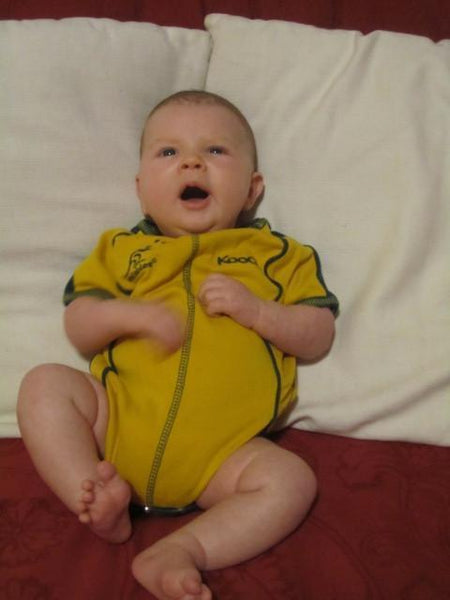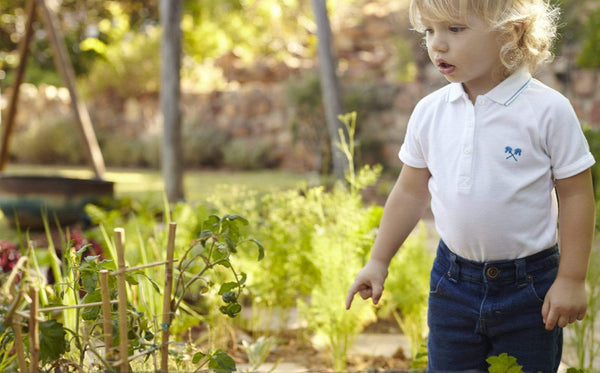Sleeping through the night: Parenting's Greatest Myth

It’s obvious that whoever coined the phrase ‘sleeping like a baby’ had a night nurse.
I remember being all dark-ring-eyed and slightly hysterical from newborn-inflicted lack of sleep, when a well-meaning friend nodded sagely and said, “you know there will be a time when you will have to wake your child up in the morning.” Before I yell: ‘liar’…yes, babies and toddlers do sleep a lot, but for inconsistent, unpredictable bursts, usually at all the wrong times and with a whole lot of snuffling, tossing and grunting noises to go with it.
So what is the real deal with babies and sleep; and when can you (if ever?) expect to get a decent night’s sleep?
The science of baby sleep
Apart from the fact that babies simply don’t yet know the difference between night and day, the simple truth is that baby sleep is fundamentally (even scientifically) different from adult sleep. On average – because we are all different too – an adult’s sleep cycle will lasts for 90 – 100 minutes. For most babies, a sleep cycle (stages of active and quiet or deep sleep) lasts, at the most, 50-60 minutes for the first nine months, lengthening gradually as they grow older. “This can take years and it is usually only when your child has reached school-age that his sleep pattern will resemble an adult’s,” explains sleep researcher Gwen Dewar.
The truth of the matter
So, knowing that a baby’s sleep pattern is made up of 50-60 minute ‘bursts’ of actual sleep, where does the idea that they ‘sleep through the night’ come from? “It is a complete myth,” says Dewar, “there is a lot of anthropological, historical, and clinical evidence showing that adults are not designed to sleep through the night, let alone babies.” When we get up in the night to go to the loo, pull up the blanket, have a drink of water, shuffle over to cuddle up closer to our partners, we consider this normal. It does not occur to us that we have not ‘slept through the night’. The difference is that we can do all these things for ourselves: babies can’t.
So, when parents claim that their child is ‘sleeping through the night’, what they’re really saying is that they are not aware of their baby’s night-time arousals. Their baby simply doesn’t make enough noise to wake them up. If you are lucky, your baby will roll over and fall into another sleep cycle all by herself, but if you are not, your baby will let you know, in no uncertain terms, that you need to help her.
The trick to a decent night sleep, then, lies in working out how to teach your baby to ‘help herself’ fall into the next sleep pattern seamlessly. And this is where the topic gets controversial: sleep training, cry-it-out, co-sleeping, rocking or nursing to sleep, pacifiers, strict routines, attachment parenting – not to mention all the different culturally accepted norms – all tout ways to do this. For me, there are some 'crib-sheet' tips on how to get your baby to sleep better:
- making sure they are warm, safe and comfortable all night (putting your baby to sleep in a wearable blanket or baby sleep bag are great for this);
- getting a bedtime routine going - you don't need to stick to specific times so much as an order of events: dinner, bath, cuddle-time (baby massage or read a book), boob / bottle, then bed;
- teach your toddler the difference between night and day by not switching on a light during nighttime wake-ups, or engaging too much with your baby;
- providing an object to associate with sleep - babies start to make sleep-associations from about 3 months old, so give them something to them says, 'its sleep time now' like a soft-muslin-style cloth or 'blankie' that smells like you, or a beloved teddy.



















